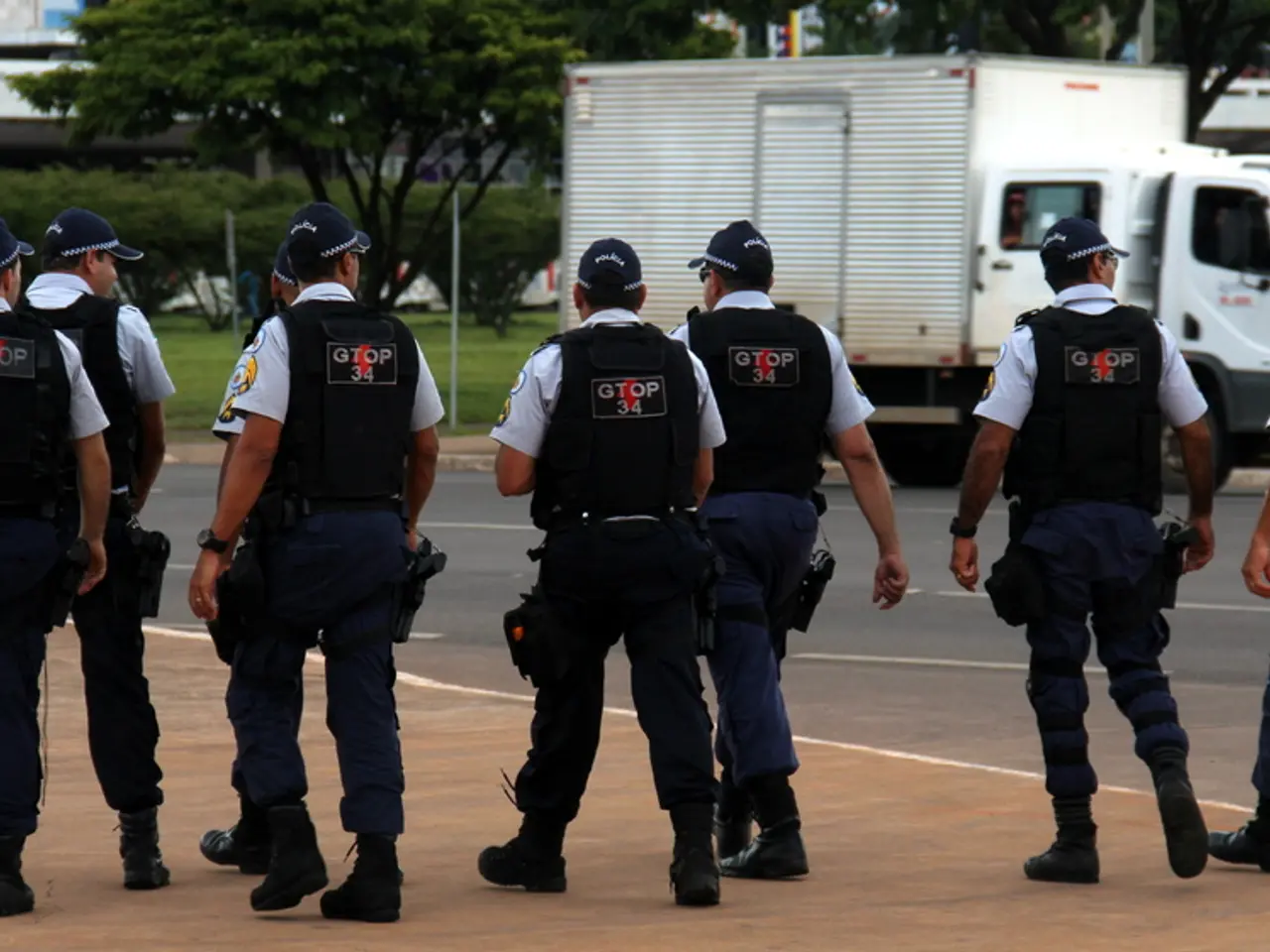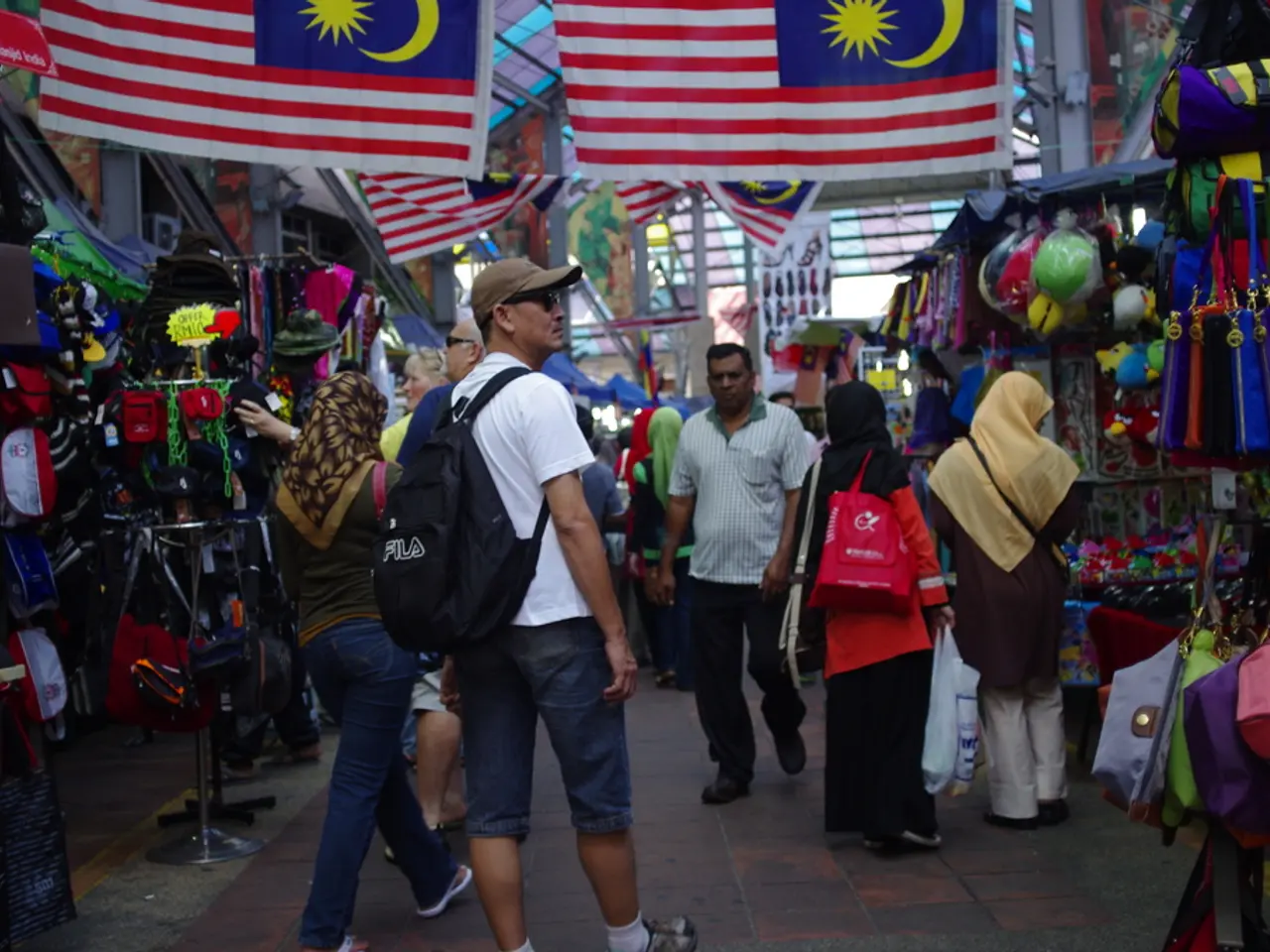Turkish Defense Ministry states that SDF's attacks undermine Syria's unity and territorial integrity
In the heart of the Middle East, a complex web of political maneuvers, military actions, and diplomatic negotiations continues to unfold.
The Syrian Democratic Forces (SDF) and the Syrian transitional government signed a preliminary agreement in March 2025, envisioning the SDF's military wing integrating into the Syrian army and handing over control of the territories in northeastern Syria under the SDF's administration. However, as of August 2025, the implementation of this agreement remains stalled, with ongoing negotiations facilitated notably by France.
Turkey, which views the SDF as an extension of the Kurdistan Workers’ Party (PKK), a designated terrorist group by Turkey, has expressed growing frustration over the delays in the SDF-Damascus integration. Ankara maintains a military presence in northern Syria and seeks to increase influence through a defense pact with Damascus. Turkish patience is reportedly "wearing thin" concerning these delays, as Turkey aims for the autonomous administration in the northeast to be dissolved promptly to secure its own peace process with the PKK.
Meanwhile, in southern Syria (As-Suwayda), the transitional Syrian government has assertively re-established control, integrating local armed groups and deploying Syrian forces. This military and political push by the Syrian government contrasts with the outstanding, unresolved situation of the SDF-held northeast.
In a separate development, tensions continue to rise in the Eastern Mediterranean. Turkey has stated that it will take necessary action on the ground if any attempt is made to violate its continental shelf. The Turkish Defense Ministry has issued warnings and released a counter-Navtex regarding the NAVWARN announcement published on August 5, 2025, for geophysical research by the Gibraltar-flagged FUGRO GAUSS vessel. This action follows Turkey's determination that a Navtex issued for cable laying work in the Eastern Mediterranean that also covers Turkish continental shelf violates its rights.
International law requires that activities like cable or pipeline laying and scientific research on a country's continental shelf be coordinated in advance with the coastal state. Turkey reported its rights on the continental shelf in the Eastern Mediterranean to the UN on March 18, 2020.
Elsewhere, the ongoing Israeli-Palestinian conflict has taken a turn for the worse. The provocative, raid-style actions by Israeli officials against Al-Aqsa Mosque on Aug. 3, along with recent annexation calls, undermine the two-state solution and hopes for peace.
In a positive development, five more PKK terrorists surrendered in the past week, having fled from shelters in northern Iraq. Turkey closely monitors and follows up on such matters to prevent any unauthorized activity on its continental shelf and does not permit any projects or initiatives that disregard its rights or bypass coordination.
This complex dynamic reflects a transitional phase with stalled SDF integration into the Syrian state, persistent Turkish concerns and pressure, and ongoing contestation over Syrian territorial control following regime change. Meanwhile, the Eastern Mediterranean remains a hotbed of tension, with Turkey asserting its rights and defending its continental shelf against perceived violations. The Israeli-Palestinian conflict continues to simmer, with no end in sight to the ongoing struggle for peace and self-determination.
- The Syrian government, through deliberate military and political actions, has reasserted control in southern Syria, while the implementation of the SDF-Damascus agreement remains stalled, as Turkey, growing increasingly frustrated, maintains a military presence in northern Syria and seeks to strengthen its influence over the region.
- Ankara's patience is reportedly wearing thin as it aims for the autonomous administration in the northeast to be dissolved promptly, to secure its own peace process with the PKK, which it views as an extension of the SDF.
- Meanwhile, tensions persist in the Eastern Mediterranean, where Turkey has threatened to take action against any perceived violations of its continental shelf, following the issuance of a Navtex by another country for geophysical research, which Turkey deems a violation of its rights.
- Elsewhere, the Israeli-Palestinian conflict remains a source of instability, as recent actions by Israeli officials against Al-Aqsa Mosque and calls for annexation undermine the two-state solution and hopes for peace.





